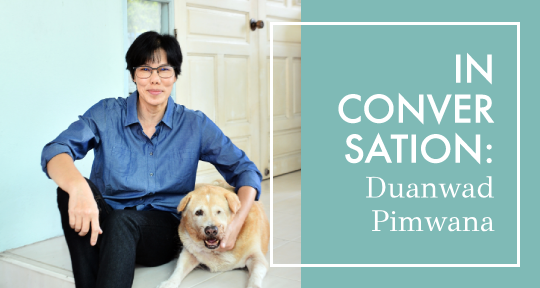Duanwad Pimwana is one of the preeminent voices in contemporary Thai literature. As enigmatic as she is celebrated, Pimwana is known for her incisive social observation. Having built her career initially as a journalist and short-story writer, she’s now published nine books in Thai, spanning a variety of genres. Two of these, the novel Bright and the short-story collection Arid Dreams, will be published by Two Lines Press and the Feminist Press respectively this April. Both texts were translated by Mui Poopoksakul.
Pimwana’s narratorial perspective is that of a fly on the wall, but one with a loud, pumping, mammalian heartbeat. She is a master of conveying the melancholy contradictions that characterize human existence. Her characters often frustrate the readers’ sympathy, blurring the boundaries between such facilities as “protagonist,” “antagonist,” and “supporting character.” We take on their coexistent hope and despair, accompanying them as they’re tossed to the mercy of chance and fortune.
In Bright, six-year-old Kampol Changsamran gets left behind by both of his parents when an episode of violence and infidelity drives them both to flee their village and reestablish their lives elsewhere with other partners. It’s sometimes easy to forget just how young little Kampol is; he steps into his newfound freedom with a sense of responsibility, resourcefulness, and wisdom that transcends his age. But in other moments, it’s all too clear that his maturity is a function of necessity. His dearest wish is to be once again embraced by the love and security of family. His neighbors, meanwhile, most of them hardly able to fill their own bellies, show a full spectrum of responses to their new collective charge.


